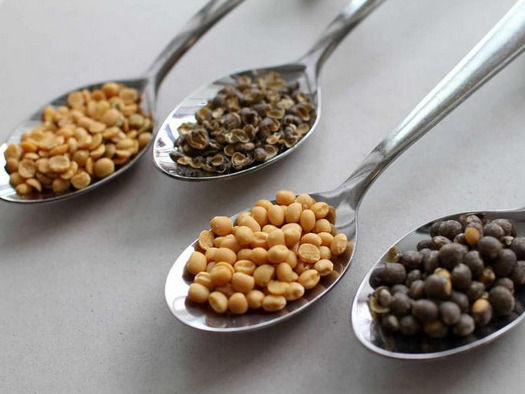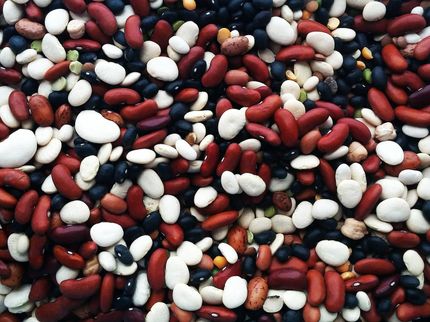Protein crops go online
Europe has a new knowledge platform for legumes: the European Legume Hub
Advertisement
The website went online on July 1, 2021, as an important step to promote the cultivation of protein crops such as soybeans, peas and beans. In the German/English Legume Hub, practice- and research-based experts bring their knowledge together to support the sustainable development of our food systems.

Various legumes
Katarina Lönnström / Universität Helsinki
We rely on plant protein to produce our food, whether for direct nutrition or as animal feed - and on imports to cover the protein deficit. 15 million tonnes of vegetable protein are imported into the EU every year. There is legitimate concern in the agri-food industry and among consumers that these proteins are produced under low environmental and social standards.
Growing more legumes such as soybeans and peas in Europe improves farming systems, brings environmental benefits and reduces Europe's dependence on imported plant protein. A crucial part of the solution is therefore the sustainable development of regional and local production in Europe - building on knowledge such as that provided by the Legume Hub.
The philosophy: shared knowledge, shared ownership
The Legume Hub is a new online platform that provides free access to knowledge, insights and successful practices for all interested parties. In doing so, the Legume Hub serves the entire value chain from plant breeding and farming to processing and consumption of legumes. Legume Hub community members use the Hub to share articles, research reports or videos.
Invitation: join the community
"Anyone with practical or research-based expertise is invited to register and thus join the Legume Hub community," says Prof. Dr. Jens Dauber of the Thünen Institute for Biodiversity in Braunschweig. The Hub (in German: Sammelpunkt, Zentrum) emerged from a research project coordinated at his institute. Every member can use the Legume Hub to publish articles or to distribute research reports or videos. Each article is attributed to the authors and their organizations and is citable as a scientific or technical publication. In addition, members can extend their involvement by joining the editorial team and contributing to the Legume Hub's direction.
The European Legume Hub Community collaborates with the European Commission and the European Innovation Partnership for Agricultural Productivity and Sustainability (EIP Agri). This will ensure that the Legume Hub is perceived as a good opportunity to give voice to the development of legume farming.
Note: This article has been translated using a computer system without human intervention. LUMITOS offers these automatic translations to present a wider range of current news. Since this article has been translated with automatic translation, it is possible that it contains errors in vocabulary, syntax or grammar. The original article in German can be found here.
























































